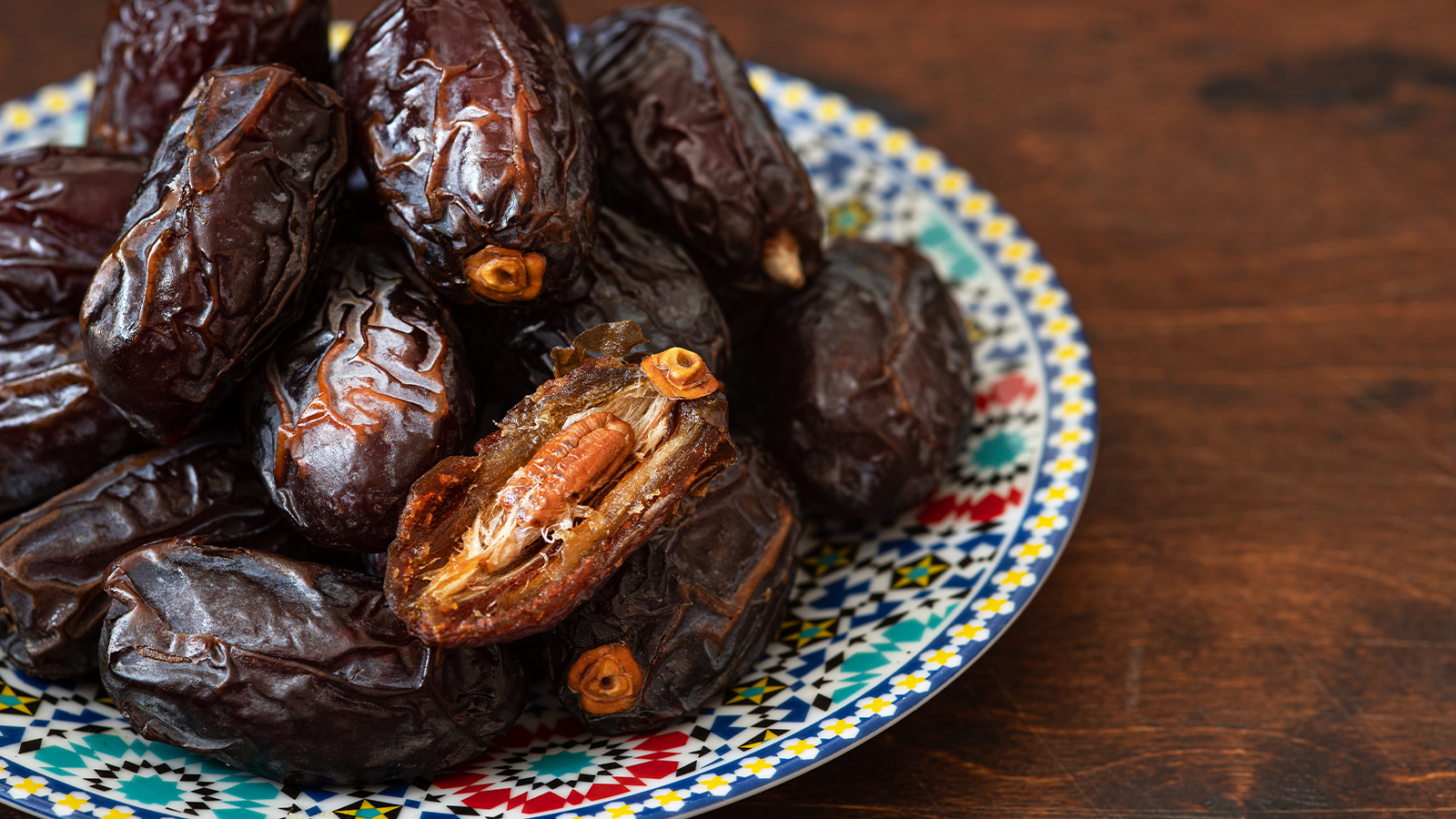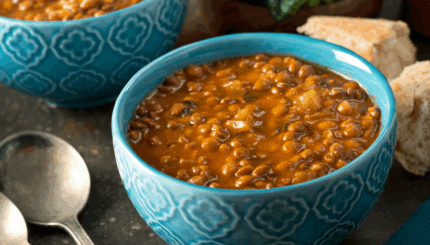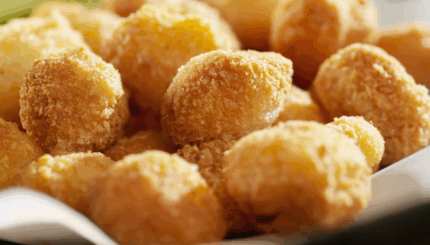Picture the date: small, brown and wrinkly, packed with an almost spicy sweetness. This ancient fruit has shared connections with Jews from time immemorial, but few people recognize how persistent the Jews’ bond with the date has remained, nor the incredible modern feats that have drawn Jews and dates even closer together.
The Torah connects dates to the Land of Israel in two significant instances. They are one of the Seven Species by which the land of Israel is blessed (Deuteronomy 8:8), the first seven agricultural items to be farmed, making them the most important. They are the edible expression of human civilization itself! Second, the abundant land is described as “flowing with milk and honey” (Exodus 3:8). While debated, most scholars believe that the “honey” was not that of bees, but rather silan, which is date honey.
Dates appear in many other places in the Torah. Shortly after crossing the Red Sea, for instance, the Israelites come to an oasis lush with date palms, providing them early sustenance. Dates also work metaphorically, with the Psalmist saying that “the righteous shall blossom like the date palm.”
As Jews spread through the Diaspora, dates remained significant. The frond of a date palm is one of the four items that make up the lulav and etrog waved on Sukkot. And, because dried dates are robust and able to survive long-distance trade, they are commonly eaten on Tu Bishvat (when it’s customary to eat fruits of Israel) and Rosh Hashanah.
The Nosher celebrates the traditions and recipes that have brought Jews together for centuries. Donate today to keep The Nosher's stories and recipes accessible to all.
After centuries of medieval wars in Israel, followed by centuries of decline under a weakening Ottoman Empire, the land had grown into an agriculturally decimated backwater. By the late 1400s, when Italian Rabbi Ovadiah of Bartenura moved to Israel, he wrote that there were no more dates in Jericho – referred to as the City of Dates in the Bible!
The rebirth of Israel’s date industry is due to two men, whose story seems ripped from a Bogart film.
In the late 1800s, Jews began agricultural work to reverse the Ottomans’ neglect. Among them was Ben-Zion Israeli, who dreamed of “date-ifying” the land. (He coined a Hebrew verb “le’tamer” (to date), from the Hebrew word for the fruit, “tamar.”) He hoped to bring 30,000 saplings from Iraq, the best in the Middle East, to plant in Israel and restart the ancient industry. Unfortunately, this was illegal under Iraqi law. Still, Israeli traveled to Persia (Iran of today) with Mossad agent Yani Avidov (who was exploring smuggling Soviet Jews out of the USSR) to bring saplings from Iraq over the border.
After his initial explorations, Israeli died in a tragic accident, so Avidov completed the mission in 1955. Rather than 30,000, he clandestinely bought 70,000 saplings and smuggled them across the Shatt al-Arab river into Persia. From there, he took them by boat through the Suez Canal. But Egypt wouldn’t allow Israeli cargo through, so the ship was officially bound for Italy. Only once it stopped in Cyprus, was Avidov able to convince the captain to bring the cargo to Haifa. Nearly a fifth dried up on the way, but the rest were successfully replanted in Israel.
While Ben-Zion Israeli’s dream of “date-ifying” Israel became a reality, something was missing: the ancient Judean date varieties that went extinct hundreds of years ago. That brings us to the latest chapter in the Jewish date story:
A number of ancient date pits were uncovered during the Masada excavations in the 1960s. They were stored in a lab and nearly forgotten until 2005, when Dr. Elaine Soloway of Kibbutz Ketura successfully germinated one of the 2,000-year-old seeds, breaking the record for the oldest seed to be grown by humans. The tree was named Methuselah after the oldest man in the Jewish Bible.
Date palms have separate male and female plants, and Soloway’s tree was male, so it couldn’t produce fruits. Later, however, more seeds of the same variety were grown, including some females, which have now produced dates using Methuselah’s pollen.
The love affair between Jews and the fruit of the date palm has endured through the ages. And thanks to audacious Israeli Jews such as Israeli, Avidov and Soloway, and the wonders of Israeli technology, we are entering a new honeymoon period in this timeless relationship, tying together the ancient past with modern ingenuity. Not bad for such a modest fruit!



